- Home
- Lois Lowry
The Willoughbys Return Page 2
The Willoughbys Return Read online
Page 2
They were, at this moment, seated at their kitchen table finishing their breakfast of gruel.1 It was what they had every morning. Lunch each day was watery soup with some sliced potatoes and occasionally a carrot. Dinner was always stew; sometimes there was a chunk of unidentifiable meat in it.
“The Fourth of July won’t be the Fourth of July without fireworks,” Winifred Poore, age ten, announced loudly, stirring her gruel.
“What are you talking about?” asked her twelve-year-old brother, Winston (their parents, naming the children, had tried for a Win-Win situation). “It’s only June.”
“I know what month it is. I was just practicing talking like Jo, in Little Women. I have borrowed Little Women2 from the library seventeen times. I like Jo best. She does a lot of grumbling about being poor, though. She says Christmas won’t be Christmas without any presents. There aren’t any presents because they’re poor. Like us. And their father is gone, like ours.”
Mrs. Poore took a folded tissue from her apron pocket and held it briefly to her eyes. “I do miss your father very much. But he’s hard-working, and he—”
“You sound so much like Marmee, in the book.” Winifred told her. “Maybe I’ll start calling you Marmee.”
“Please don’t,” said Mrs. Poore. “I prefer Mother.”
“Well, you were Marming.”
“What does that mean?”
“Oh, talking in a pathetic way, kind of sweetly but in a way that makes people want to gag.”
Winston looked up from his gruel and did a brief gagging imitation. Then he asked, “Where is Father? I mean, where is he now? I know we got a postcard from Ohio, but that was weeks ago.”
(Their father, Ben Poore, had been gone for quite a long time. He was an encyclopedia salesman. He held the world record, actually, for sales. He had never sold a single one.)
Mrs. Poore sighed. “Poor Father,” she said. “He had a difficult time in Ohio. He’s gone farther west. He’s now—”
“I’m fond of Ohio,” Winifred commented. “It has an O at each end.”
“Why did he have a difficult time?” Winston asked. He stood up to take his empty gruel bowl to the sink.
His mother sighed. “Well, he was going door to door, as he does, with his encyclopedia samples, and—”
Winston groaned. “Those stupid encyclopedias,” he said. “He tried to sell a set to my sixth grade teacher, but she looked at it and said it was way out of date.”
“That’s why the price is so reasonable,” his mother explained.
“But you can’t look up, say, computers in an encyclopedia that was published before they were invented,” Winston pointed out.
“Or the newest elements,” Winifred added. Winifred was very interested in science. “I don’t think Father’s encyclopedia has any elements since, oh, probably Bohrium.3 And there are something like eleven more after that.”
Mrs. Poore sighed. “Well, look up Abe Lincoln instead, then. Or steam engines.”
“Or granite,” Winifred said. Geology was Winifred’s favorite scientific study. She collected rocks. Granite was her favorite.
“Why did Father have a difficult time in Ohio?” Winston asked again.
“Well,” his mother explained, “he opened the gate to a yard, intending to knock on the door of the house, and a dog bit him.” She paused. “And I’m sorry to say that he kicked the dog.”
Winifred gasped. “Father kicked a dog?”
“Well, yes, he did. I’m sure it was a very vicious dog. But Father was arrested for animal abuse. The authorities finally let him go, but he had to agree to leave town. So he headed west.”
Mrs. Poore stirred her tea, then carefully lifted the teabag out of her cup and examined it. “I think I can get at least two more breakfasts out of this bag,” she said, and set it aside carefully. “Thrift is a great virtue, children. Remember that.”
“Marming,” murmured Winifred, and her brother nodded in agreement.
Mrs. Poore ignored the murmur and turned to her daughter. “Are you fond of any state with vowels on either end?” she asked. “Like Idaho and Indiana? Or does it have to be the same vowel?”
Winifred thought. “Same,” she said.
Her mother smiled and sipped. “In that case, you’ll be fond of Father’s current location. “He’s in Alaska now.”
“Alaska?” Winston asked. “Why Alaska?”
“He felt quite certain that they would need encyclopedias in Alaska. And in between door-to-door sales calls, he thought he might try prospecting for gold,” Mrs. Poore explained.
“Gold would be nice,” Winifred said. She stood and placed her bowl in the sink next to her brother’s. “They discovered gold around 6000 BCE. The woman next door? She has a gold bracelet. Sometimes she comes outside to call to her son, and I can see it all shimmery on her arm.”
Mrs. Poore sighed a little and looked at her own bare wrist.
“Sorry,” Winifred said. “I probably shouldn’t have mentioned it.”
“Does Father know how to do that?” asked Winston with a dubious look. “Prospecting?”
“He planned to look it up in the encyclopedia,” his mother explained. “He sent me a postcard, just a few sentences, last week. The scenery was nice, he said, but he was cold. He wondered if I would knit him a scarf.”
“Did you?” asked Winifred.
“No, dear. Yarn is too expensive.”
Winifred began to cry. “Poor Father,” she wept.
“Do we have any tissues?” she whimpered, after a moment. “My nose is dripping.”
“Just this one, into which I recently sneezed,” her mother answered, taking it from her apron pocket. “Tissues are so expensive. Here you go.”
“Never mind,” Winifred said. “I guess I’ll use my sleeve.”
7
At the very moment that Winifred Poore was wiping her drippy nose on her sleeve, her father, Ben Poore, was sound asleep in southeast Alaska. It was four hours earlier there.
The afternoon before, he had been to the local post office in Whitehorse to mail a gift to his daughter.
“How’s it goin’?” the postal clerk had asked.
Ben Poore had sighed. “Not very well,” he told the clerk. “The soles of my shoes are wearing thin. I’m having zero luck selling encyclopedias. And my samples are heavy to carry around. I don’t suppose you’d be interested? I could give you a special price . . .”
The clerk gave an impatient sigh. “I meant: How’s it goin’? Priority? Overnight? Parcel Post?” She picked up the clumsily wrapped package he had placed on the counter. “Yikes. That weighs a ton. What’ve you got in there—rocks?”
Ben Poore was startled. “How did you know that? Are you a mind reader or what?”
“Just a guess.”
“Well,” he said, “good guess. I’m sending Alaskan rocks to my daughter. She loves— Whaddya call it? Geology, that’s it. She wants to be a geologist. So I’m sending her a bunch of rocks.”
The clerk weighed the package. “Well, it’s gonna cost you thirty-two dollars to send it the cheapest way. And it’ll take a while to get there.”
He winced. “No rush. But thirty-two dollars? I’m running low on cash,” he confided. “If I don’t sell a set of encyclopedias soon . . .” He interrupted himself. “Hey! I bet the M volume has a lot of information about mind reading! How about—”
“Nope. Sorry.” She held out her hand for the money.
Reluctantly he took two twenty-dollar bills from the thin roll of cash he had left and gave them to her. She counted out his change.
“I was going to stop in that café down the street for supper,” Ben Poore said, pocketing the bills. “But now I can’t afford it. I guess I’ll just get myself a candy bar.”
The clerk. “No, you won’t. Haven’t you heard the news?”
“What news?”
“Candy’s illegal now. New law.”
“Illegal?”
“Jail time.”
&
nbsp; “I can’t even buy a Milky Way? Or a Nestlé Crunch bar?”
“White-collar crime.”
“Even M&M’s?”
“All candy,” she said.
“What if someone gives me a really expensive box of Godiva chocolates?”
She stared at him, with his unkempt beard and coffee-stained plaid shirt. Briefly she glanced over at the post office wall, to the Most Wanted posters tacked there, and decided he wasn’t a match. But she chose not to comment on the Godiva chocolates.1 Instead, she beckoned to the person behind him in line. “Next?” she called.
“Jeez. Well,” he said, turning to leave the post office, “I’ll make do with an apple, I guess.”
“Good for your teeth!” she called after him.
8
The Poores were unaware, of course, that their absent father had mailed a package to his daughter the day before, or that Mr. and Mrs. Willoughby had made their way back from Switzerland and would soon arrive in the same neighborhood where they lived. The Willoughby house, an old-fashioned four-story residence that had been their home before they left on their ill-fated vacation, was just a few blocks away.
No one called it the Willoughby house, though. Everyone had forgotten who had once lived there—that it had been an ill-tempered banker and his equally ill-tempered wife, along with their four children. Tim Willoughby, on his way to and from the confectionary factory, always had his chauffeur take a different route so that he didn’t have to glimpse the house and remember his boyhood years. When they became adults, he and his siblings had created a fund that memorialized Henry and Frances Willoughby by supporting good causes of various kinds. But the sad truth is they had never really missed the ill-tempered couple who had gone on a vacation without them and been turned into human popsicles on an Alp thirty years before.
And the Poores? They had never heard of the Willoughbys. The only neighbors that interested the Poore children were the people who lived next door, Richie and his parents—and his grandfather—in the mansion. Winifred and Winston were fascinated by the sprawling giant of a house with its turrets and balconies and even gargoyles.1
Winifred Poore had counted the mansion’s windows several times. The number was always the same: thirty-seven.
“We only have six windows,” she had sighed one afternoon. “And they have thirty-seven.”
“Think of it as an opportunity for reviewing math,” her brother had suggested. “Thirty-seven minus six equals . . .”
“I don’t have enough fingers for that.”
“You’re not supposed to count on your fingers,” Winston pointed out. “What if you didn’t have fingers? A lot of poor people don’t.”
“Why not?” asked Winifred. “Why don’t they? Fingers don’t cost anything. You don’t have to buy fingers.”
“Of course you don’t. But poor people have to work in factories with dangerous machinery. So their fingers get chopped off.” Her brother, with a grin, held up one hand with two fingers folded it over so it looked as if they were missing.
Winifred shuddered. But she picked up her pencil and did the math problem on the back of a torn piece of newspaper. “Thirty-one,” she said. “They have thirty-one more windows than we do. It isn’t fair.”
“Of course it isn’t fair,” Winston agreed. “But we should—” He hesitated, looking at his mother and sister meaningfully until they both chimed in.
“Make the best of it.” It was something the family often said. When Father had come home looking gloomy and said, “I didn’t sell a single set of encyclopedias, and I stepped in a mud puddle and ruined my only pair of shoes,” they said it. When dinner was nothing more than a thin beige stew with a few limp carrots and a bruised potato, they said it. And now, when Winifred sulked about the comparison of windows, they said it again.
“What exactly does that mean, to make the best of it?” Winifred asked.
“I don’t know,” her brother replied.
Mrs. Poore smiled as she stood at the sink wiping the cereal bowls with a ragged dishtowel. “It means, dear, that some people, like us, live in tidy little houses and count our pennies and eat gruel for breakfast. But we don’t complain. And we don’t envy others.”
“You’re Marming, Mother,” Winston pointed out.
“Sorry.”
“You mean don’t envy Richie next door? Who has thirty-seven windows? And probably Belgian waffles with real maple syrup for breakfast?” Winifred asked gloomily.
“Exactly. We must feel happy for Richie.”
“Oh, Mother,” Winifred sighed, “you are such a Marmee.”
* * *
Wandering into their yard after breakfast, Winifred and Winston watched through the fence as Richie bounced his basketball a few times, then set it carefully on the porch. He went inside and returned after a moment with a large toy car. Winston glanced down at the chipped, three-wheeled toy car in his own hand. His father had carved it for him. Winston was fond of his little car, but now he deposited it on the ground and moved closer to the fence to see the amazing device that Richie had just set on the lawn.
“Wow! Is that yours, Richie?” he called.
“Yes. It’s a remote-controlled replica of the exclusive Lamborghini Veneno Roadster,” Richie replied.
“Did you have a birthday?” Winifred asked, coming closer to the fence herself, though she wasn’t terribly interested in cars.
Richie looked surprised. “No,” he said. “I just saw it online, and so I ordered it.” Then he added, “I’m not allowed to do that anymore. Because of dentists.”
“What did dentists do?” Winifred asked.
“I’m not sure. Something. And now we’re destitute.”
“What does that mean?” Winifred asked.
“It means ruined.”
“Ruined how?” asked Winston.
“I don’t know,” Richie replied.
“Well, you still have this fabulous car,” Winston reminded him.
“Yeah,” Richie said, and looked down at it. “The steering wheel controller’s on the porch. It has a forty-nine-foot range, plays revving motor sounds through its integrated speaker, and guides the model in all directions, accelerating it to a maximum five point six miles per hour.” He leaned down, checked the positioning of the car, then went to the porch and activated the controls. The car moved across the neatly trimmed grass, then made a U-turn, came back to its original starting point, and stopped. “The iconic Lamborghini bull adorns the hubcaps and hood, the LED head- and taillights illuminate, and the exterior is painted the same shade as the full-size version,” Richie recited.
He sent the vehicle around the yard again. Then he came down from the porch, picked up the car, and went back into his mansion.
The Poore children turned away from the fence and sat side by side in their unkempt yard. Winston picked up his little toy car and maneuvered it in and out among some weeds, carefully avoiding a line of ants moving in meticulous order toward their anthill.
“If we had a computer, we could order things,” he grumbled.
“If we had money, we could get a computer,” Winifred replied.
“If Father had a real job, we’d have money,” Winston pointed out.
There was a long silence while they felt a little guilty for criticizing Father. He was a kind man and it wasn’t his fault that no one wanted outdated encyclopedias.
Finally Winifred said, “If we had jobs, we’d have money.”
“But who would hire us? Who needs us? We’re useless.” Winston poked at the ants with a twig and forced them to rearrange their tidy marching line.
Winifred considered that. Then she nodded toward the mansion on the other side of the fence. “I think maybe he needs us,” she said.
“Who?”
“Richie. He’s lonely.”
9
At that very moment, Henry and Frances Willoughby were actually quite nearby. Just a few blocks away from the Poores, and the mansion next door to the Poores, the ill-
tempered and oddly dressed (before they left Switzerland the American embassy1 had provided them with clothing, but it didn’t fit and was mostly brown) couple was standing on the sidewalk, complaining to anyone who would listen. There were not many listeners around, but Mr. Willoughby accosted a young woman pushing a stroller on the sidewalk and began to describe the situation until the toddler in the stroller wailed because he had dropped his pacifier. Mr. Willoughby, who disliked toddlers, especially wailing ones, turned away and the woman walked hastily on. Next he called to a man driving a delivery truck. The truck slowed, and the driver lowered his window and called, “What?”
“This house!” Mr. Willoughby said. He indicated the tall house where his wife was standing at the foot of the front steps. “It used to be my house!”
“Great,” the truck driver said. He revved his engine.
“But the people inside said they’ve never even heard of me!” Mr. Willoughby bellowed.
“I never heard of you either, mister,” the truck driver said. He raised his window.
“My name is Henry Willough—”
The truck issued a small fart of gray smoke, moved forward, and disappeared around the corner.
“Or me!” his wife said in a petulant voice. “What about me?”
A squirrel, halfway up the trunk of a tree on the edge of the sidewalk, paused, tilted its head, and looked at the angry couple. Then, like the truck driver, it continued on.
“Ring the bell again,” Mr. Willoughby commanded. “This is outrageous.” His wife shifted her heavy purse2 from her right arm to her left, mounted the steps, and pushed on the doorbell. Nothing happened. She pushed again and again until finally the red door jerked open and a heavyset man appeared.
“I told you! Quit bothering us! We’re watching a ball game.”
Mr. Willoughby began using his bank vice president voice: a quiet one oozing with politeness but with a thin, hostile edge to it. “Allow me to introduce myself. I’m Henry H. Willoughby. And you, sir, would be . . . ?”

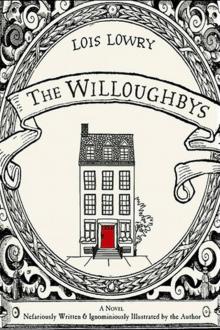 The Willoughbys
The Willoughbys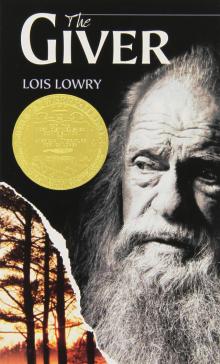 The Giver
The Giver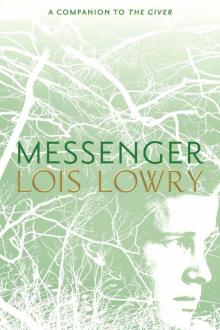 Messenger
Messenger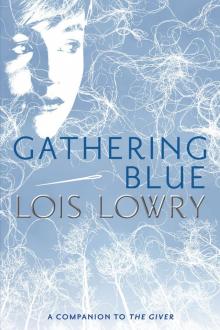 Gathering Blue
Gathering Blue Gooney Bird and All Her Charms
Gooney Bird and All Her Charms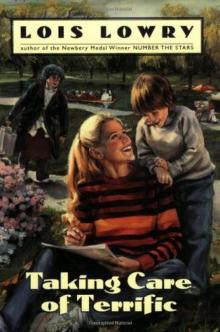 Taking Care of Terrific
Taking Care of Terrific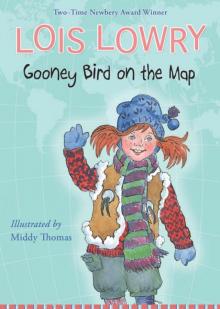 Gooney Bird on the Map
Gooney Bird on the Map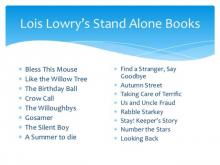 The Birthday Ball
The Birthday Ball Anastasia's Chosen Career
Anastasia's Chosen Career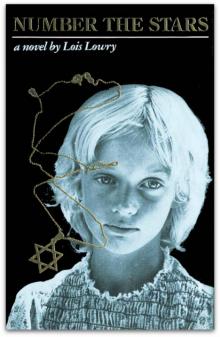 Number the Stars
Number the Stars The Silent Boy
The Silent Boy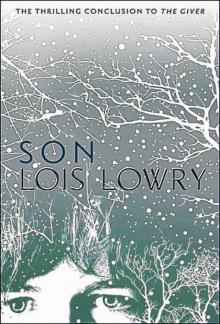 Son
Son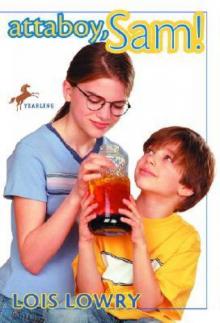 Attaboy, Sam!
Attaboy, Sam! Gooney Bird Greene
Gooney Bird Greene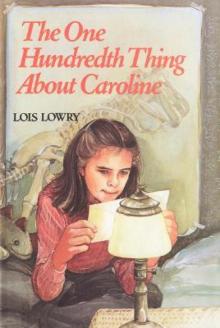 The One Hundredth Thing About Caroline
The One Hundredth Thing About Caroline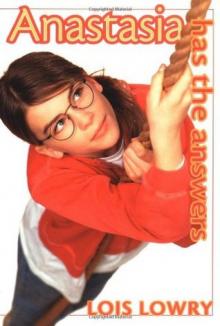 Anastasia Has the Answers
Anastasia Has the Answers Your Move, J. P.!
Your Move, J. P.!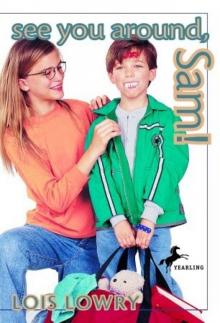 See You Around, Sam!
See You Around, Sam!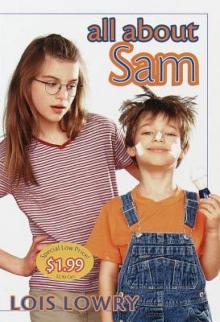 All About Sam
All About Sam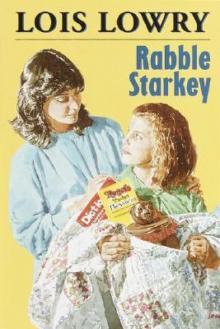 Rabble Starkey
Rabble Starkey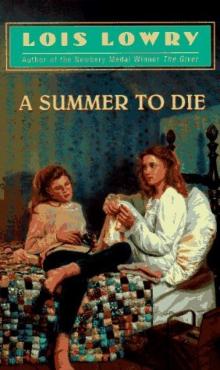 A Summer to Die
A Summer to Die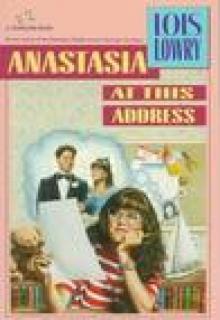 Anastasia at This Address
Anastasia at This Address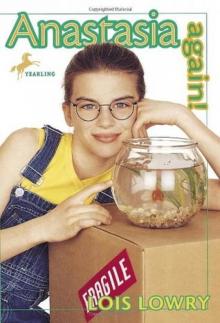 Anastasia Again!
Anastasia Again!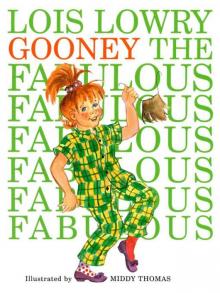 Gooney the Fabulous
Gooney the Fabulous Gossamer
Gossamer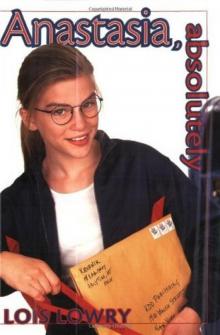 Anastasia, Absolutely
Anastasia, Absolutely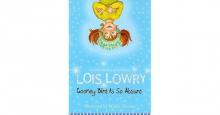 Gooney Bird Is So Absurd
Gooney Bird Is So Absurd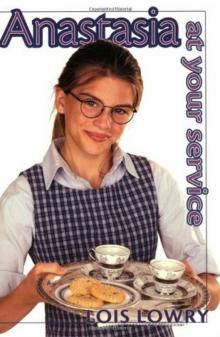 Anastasia at Your Service
Anastasia at Your Service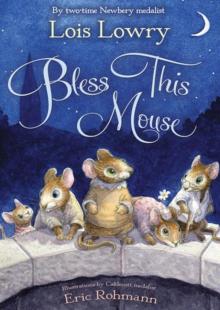 Bless this Mouse
Bless this Mouse Find a Stranger, Say Goodbye
Find a Stranger, Say Goodbye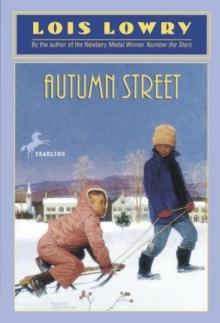 Autumn Street
Autumn Street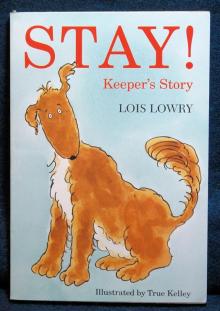 Stay Keepers Story
Stay Keepers Story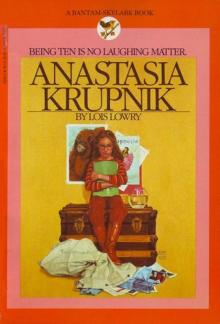 Anastasia Krupnik
Anastasia Krupnik Zooman Sam
Zooman Sam On the Horizon
On the Horizon Anastasia, Ask Your Analyst
Anastasia, Ask Your Analyst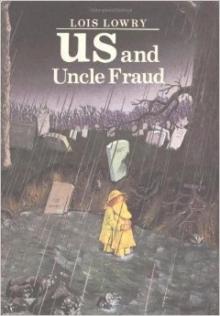 Us and Uncle Fraud
Us and Uncle Fraud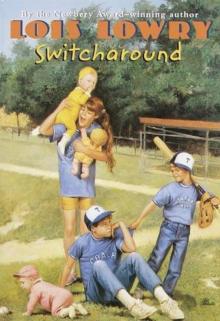 Switcharound
Switcharound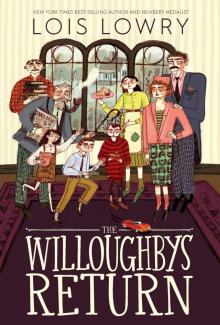 The Willoughbys Return
The Willoughbys Return Dear America: Like the Willow Tree
Dear America: Like the Willow Tree Shining On
Shining On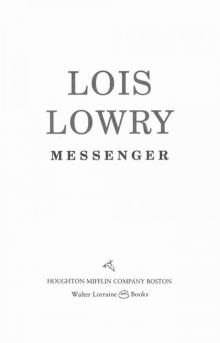 Messenger (The Giver Trilogy)
Messenger (The Giver Trilogy)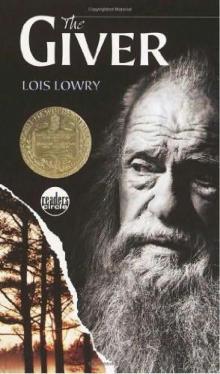 Giver Trilogy 01 - The Giver
Giver Trilogy 01 - The Giver